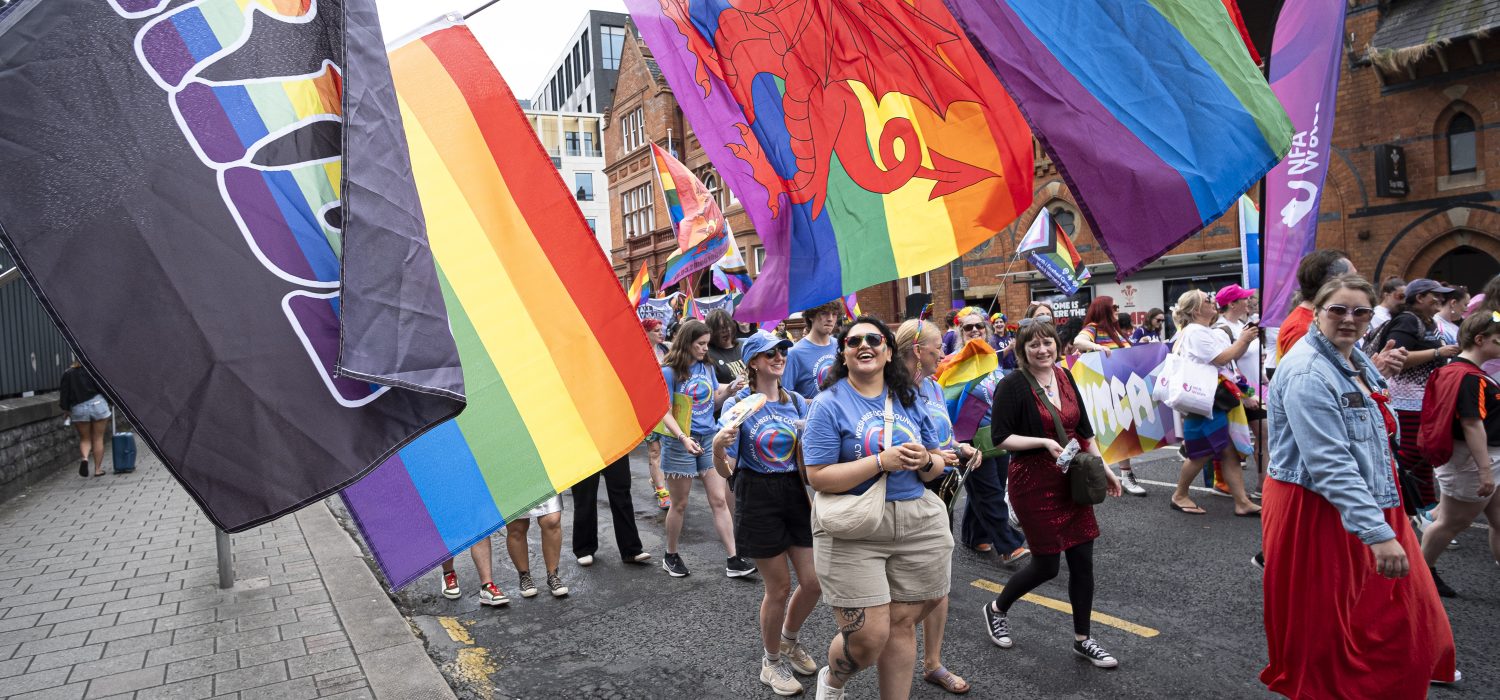Pride is protest. Pride is protection. Pride is a promise.
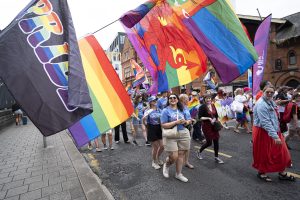 When we step onto the streets of Cardiff for the Pride march—draped in rainbows, chanting for love and liberation—it is more than just a celebration. It’s a lifeline. For many LGBTQIA+ people seeking sanctuary in Wales, Pride represents a freedom they were never allowed to express in the countries they fled.
When we step onto the streets of Cardiff for the Pride march—draped in rainbows, chanting for love and liberation—it is more than just a celebration. It’s a lifeline. For many LGBTQIA+ people seeking sanctuary in Wales, Pride represents a freedom they were never allowed to express in the countries they fled.
This is why the Welsh Refugee Council proudly joins Pride Cymru. Our presence is not symbolic—it is deeply personal, and deeply necessary.
The hidden crisis: Being queer and displaced
Across the world, being LGBTQIA+ is not just stigmatised, it is criminalised. In 64 countries, consensual same-sex acts remain illegal. In 11 of those, it can be punishable by death. For many, this isn’t just a matter of social exclusion, it’s a matter of survival.
In some countries, laws may not explicitly mention sexuality or gender identity, but the persecution is real and relentless: state-sanctioned violence, “corrective” rape, forced conversion therapies, arbitrary detention, and honour-based killings. In these environments, queer people live in fear—not only of strangers, but of their own families, neighbours, and governments.
Why people flee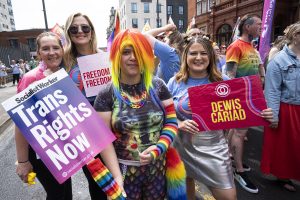
Take the example of Uganda’s Anti-Homosexuality Act, passed in 2023, which includes provisions for the death penalty and long prison terms for same-sex relationships. In Afghanistan, LGBTQIA+ people have been hunted and killed by the Taliban, often without recourse to protection or justice. In countries like Iran, Saudi Arabia, or Russia, people are tortured or executed for simply being who they are.
For queer people, home becomes a hostile place. And when you flee persecution based on your identity, you are not just looking for safety, you are searching for the right to exist.
Arriving in Wales: Hope meets hardship
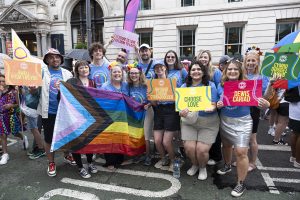
Wales offers refuge—but the journey is far from over.
Many LGBTQIA+ people seeking sanctuary arrive here with deep trauma. They often face multiple layers of marginalisation: as sanctuary seekers, as people of colour, as those navigating unfamiliar systems, and as queer individuals in communities where LGBTQIA+ identities are still not accepted.
A 2022 study by Stonewall and Rainbow Migration found that:
-
Two in five LGBTQIA+ sanctuary seekers were denied basic privacy or protection in accommodation.
-
70% felt unsafe being open about their identity.
-
Many reported having to “prove” their sexuality or gender identity to sceptical case workers—reopening wounds and reinforcing shame.
These are not just bureaucratic hurdles. They are active harms.
Why our presence at Pride matters
The Welsh Refugee Council walks in Pride to amplify these stories—and to affirm that everyone has the right to live and love without fear.
Our presence tells LGBTQIA+ people seeking sanctuary: You are not invisible. You are not alone. You belong.
It also sends a message to the broader community: that queer liberation must include those whose journeys brought them across borders, who fled not just hate, but laws designed to erase them.
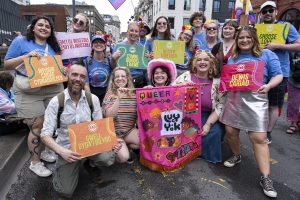
What we can all do
-
Educate ourselves about the intersection of LGBTQIA+ rights and seeking sanctuary.
-
Challenge xenophobia and homophobia in our communities.
-
Support inclusive policies that protect LGBTQIA+ sanctuary seekers.
-
Donate or volunteer with organisations that work directly with queer refugees.
Hope in action
At the Welsh Refugee Council, we work year-round to support people seeking sanctuary—including LGBTQIA+ individuals—through housing advice, trauma-informed counselling, and community integration programmes. But we also advocate for better systems: for more compassionate asylum policies, inclusive training for frontline workers, and safe accommodation for all people.
Pride is protest. Pride is protection. Pride is a promise.
Marching at Pride is a reminder that freedom is not equally distributed. But it can be. Together, we can create a Wales where sanctuary means safety—for everyone.
